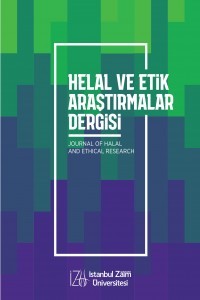
Helal ve Etik Araştırmalar Dergisi
Yazarlar: Fatih GÜLTEKİN, Orhan ÇEKER, Adem ELGÜN, Mehmet GÜRBİLEK, Murat ŞİMŞEK, Rıfat ORAL, Saffet KÖSE, Selman TÜRKER, Hamdi DÖNDÜREN, Mustafa ÜNALDI, Erdoğan KÜÇÜKÖNER, Hasan YETİM, Ahmet AYDIN, Bülent DEDE, İ̇smail ÖZMEN, Levent BAŞAYİĞİT, Mustafa CENGİZ, Tahir TİLKİ, Sümeyye AKIN
Konular:Beslenme ve Diyetetik
Anahtar Kelimeler:Istihalah,Chemical changes,Food additives
Özet: Some of the food additives are obtained from animal sources. Resources of the food and the physical and chemical changing process in the production process determine their rulings in Islamic law. The substances obtained from non halal (unlawful) sources may be considered halal (lawful) when the chemical changes were taken place during the production, that is called istihalah. Physical changes do not cause to istihalah. In this article, the istihalah examples given in Islamic law are evaluated, interpreted and adapted to the current food additives. According to this, the following results were obtained: Every part of the swine is not allowed to use as a raw material in the production of food additives whether it was undergone to istihalah or not. Because everything belong to swine is considered dirty (najis). Chemically, triglycerides are undergone istihalah if they are brokendown to glycerol and fatty acids. Proteins are undergone istihalah if they are totally brokendown to their amino acids. When glycerol, fatty acids and amino acids generated from these breakdowns are used to produce new substances, the new products are accepted as undergone to istihalah. However, monoglycerides, diglycerides, phospholipids, nucleotides, gelatins and phosphatidic acids as metabolites are not accepted as undergone to istihalah. Because, they are not hydrolyzed to their subunits, so they do not lose their features. If these compounds are combined with new additives, the new component are also not accepted as undergone to istihalah.